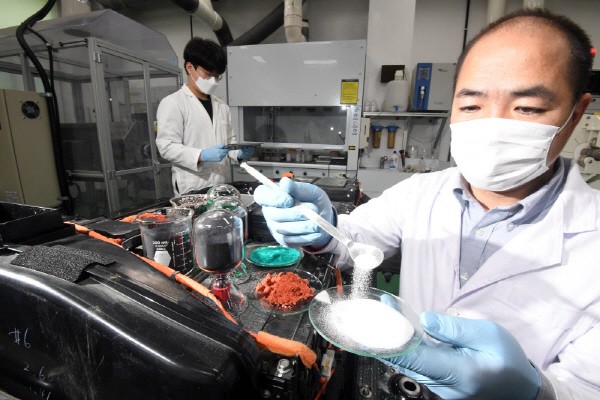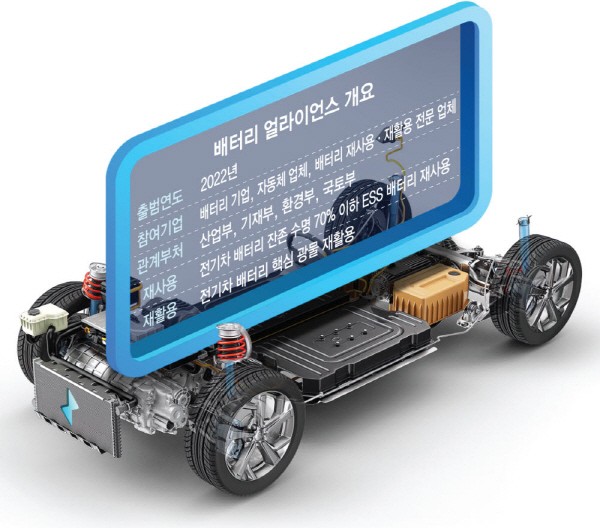Establishing an alliance to foster industry
Participation from the battery, automobile, and recycling industry
Identifying of remaining value through DB
Promotion of ESS reuse, mineral extraction, etc

There will be a battery partnership to foster the battery industry after using EVs. It will create a database (DB) for remaining capacity of battery status and performance quality of EVs, and enhance battery reuse and recycling rates. Batteries with a lifespan of less than 70% are reused as an energy storage system (ESS) battery. Batteries with a lifespan of less than 50% are directly extracted, and recycled to create a domestic EV battery ecosystem.
An alliance will be established to expand the EV battery cycle economy; it will be comprised of domestic battery companies, automobile manufacturers, and battery reuse and recycling companies. The meeting to establish the alliance will be held next month.
The alliance includes the Korea Battery Industry Association, Korea Auto Dismantlement Recycling Association, Korea Environment Corporation, and Korea Insurance Development Institute. They will work together to create an ecosystem in all fields of battery. The goal of the alliance is to secure key minerals by reusing or recycling batteries.

Alliance will create a DB management system for battery life cycle, and the residual value of EV batteries is determined based on the DB. EV batteries are replaced every 10 years, and the battery can be used in various ways in the range of 70-80% remaining capacity level. ESS batteries for home appliances and commercial use are receiving attention for batteries with a lifespan of less than 70%. The reusable batteries are also inexpensive. Batteries with a lifespan less than 50% is recycled to extract key minerals.
The government will strengthen cooperation to foster the EV battery reuse industry through cooperation with relevant ministries such as the Ministry of Trade, Industry and Energy, the Ministry of Economy and Finance, and the Ministry of Environment. The motive of cooperation is to foster an EV battery-based industry to create a core mineral extraction industry for batteries from a reuse industry such as a battery subscription economic service.
The U.S. and Europe are striving to preoccupy the EV battery market by enacting regulations on battery reuse and recycling. The U.S. Inflation Reduction Act (lRA) requires that more than 40% of the battery’s core minerals be mined and processed in North America and in areas signed with the U.S. Free Trade Agreement (FTA). The US is expected to reach up to 80% by 2027.
Jae-hong Park, CEO of PM Grow, said, “We are planning to make various efforts from re-establishing the definition of waste battery as a circular economy to fostering it as a new battery-based industry as recycling of EV battery resources.”
By Staff Reporter Ji-woong Kim (jw0316@etnews.com)
